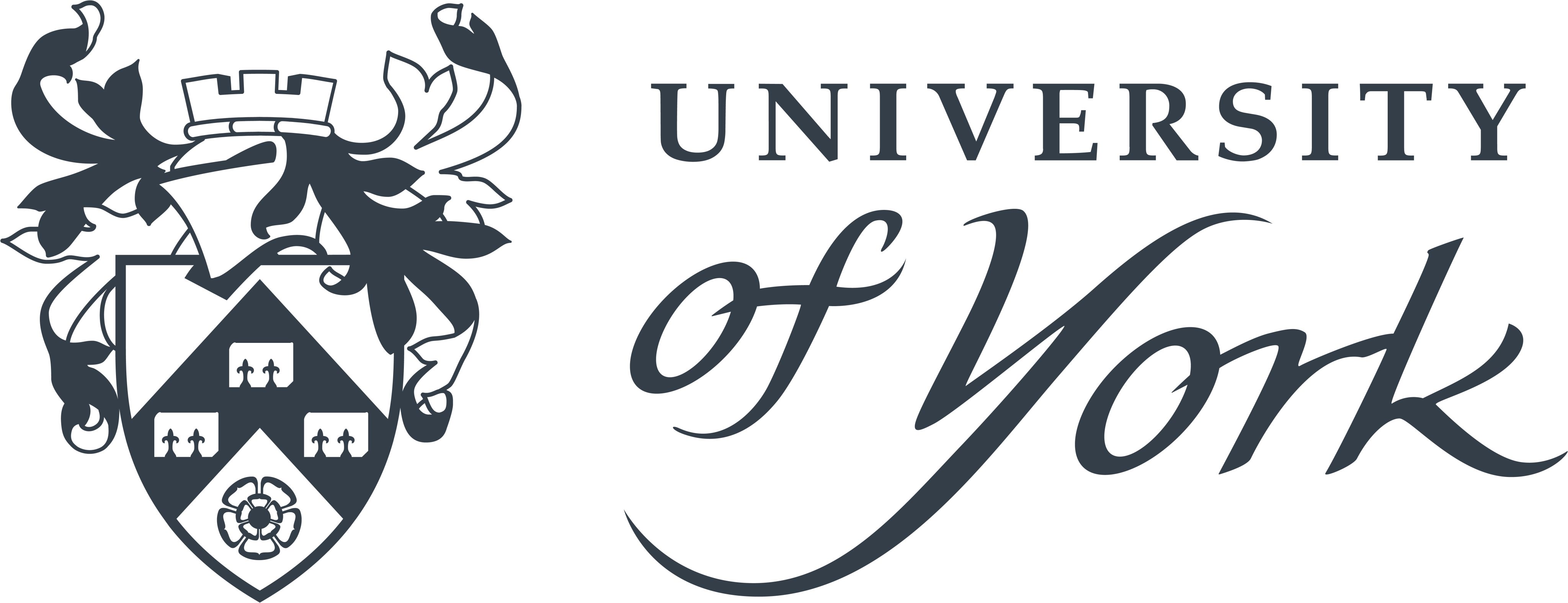"In York, the opportunity waits, and all history beckons."
- Oliver Sheldon, a pioneer in founding the University of York.
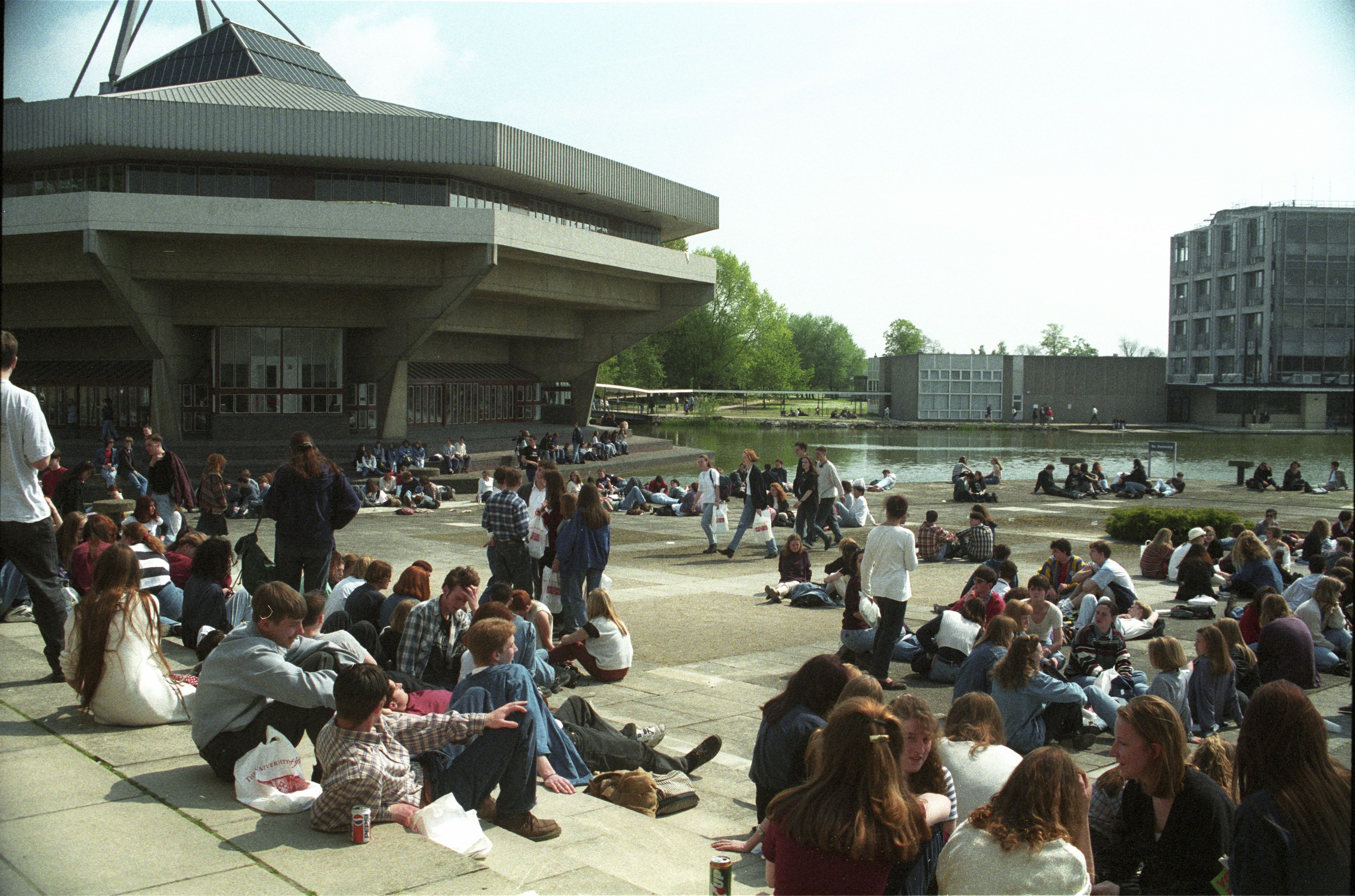
Oliver Sheldon (1894 - 1951) is an important figure in the University of York’s history. He was a major player in establishing the Borthwick Archives (which feature in this newsletter) and finding the archives a home in St Anthony’s Hall.
He also campaigned for creating a university because “in York, opportunity waits, and all history beckons” capturing the rich historic city as the perfect base for new ideas.
70 years later, the University is now part of the city’s history and continues to create opportunities for our students, our researchers, and the wider community.
Read about our incredible community of alumni, staff and friends who have supported York through legacy and in memory gifts below.
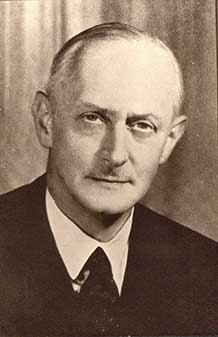
Introduction
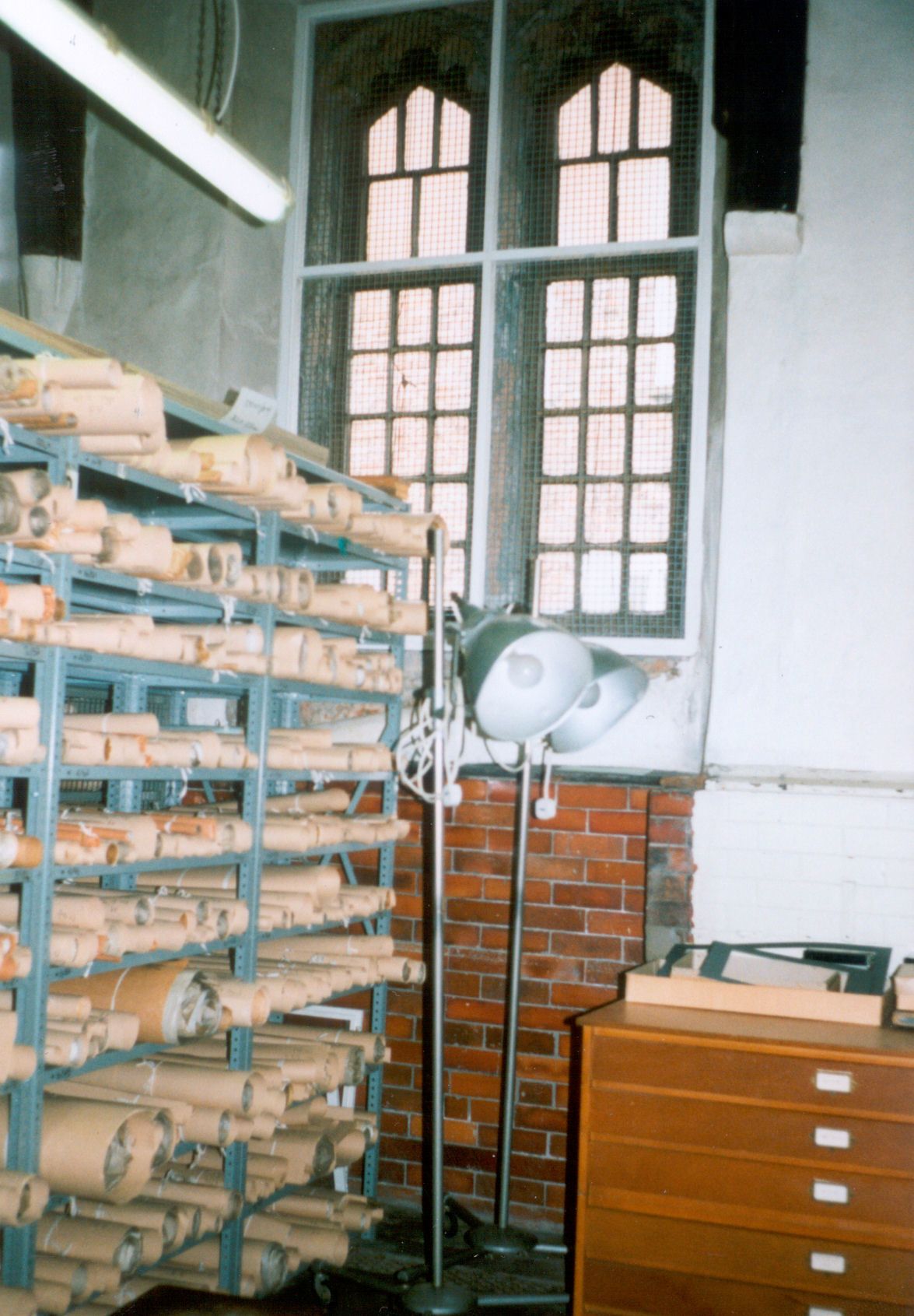
Gary Brannan, Keeper of the Borthwick Archives and Research Collections at the University of York:
“There is a truism that the world is made by those who came before us. Archives - such as the ones we care for here at the Borthwick Institute for Archives at the University - are testament to this. The Borthwick seeks to ensure that the records that document the thoughts, actions and decisions of those who made our world are preserved for the future, and made available for research, now and in the future. That could be the history of how we cared for people living with poor mental health, for instance; our approaches to the treatment of people of colour; how we recorded the voices and contributions of women in a male-dominated world; or how we reacted to challenges to the norms of gender and sexuality.
Some of our archives document the lives of those that have changed our world in ways we know - the Rowntree family and their study of poverty; Cardinal Wolsey and the reformation in the 16th century; Frankie Howerd and Alan Ayckbourn and the ways they have made us laugh.
Many, many others document the contribution and legacy of those we may not have heard of - the farmers, vicars, shopkeepers, chocolate makers, engineers, midwives and teachers that made differences to lives wherever they went. Many of these legacies are recorded in the large probate archive we care for, which documents lives in Yorkshire and the north from 1389-1858.
In the end, caring for archives isn’t about caring for paper and parchment. It’s caring for - and amplifying the achievements of - the countless lives and legacies of the people that made our world.”
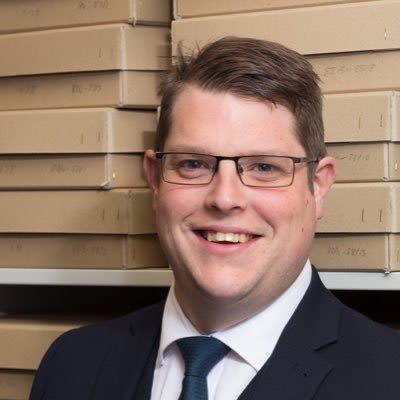
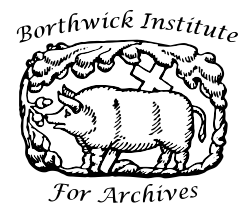
The logo of the Borthwick, designed by the first Director John S. Purvis from a carving on St Anthony’s Hall ceiling.
The logo of the Borthwick, designed by the first Director John S. Purvis from a carving on St Anthony’s Hall ceiling.
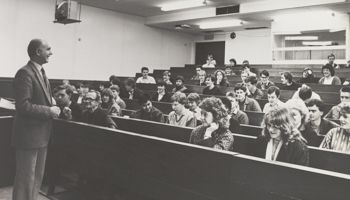
Lectures on the Borthwick collection
Lectures on the Borthwick collection
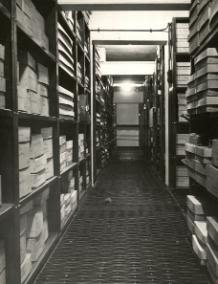
Archives stored on the mezzanine.
Archives stored on the mezzanine.
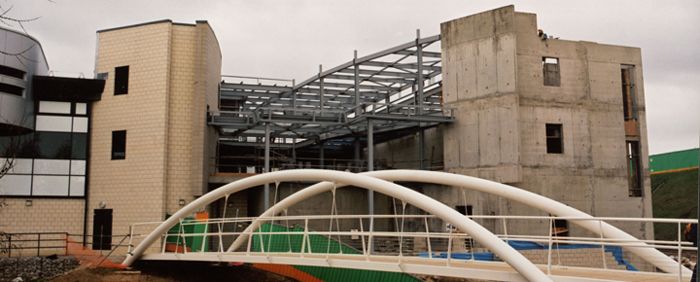
The new home for the Archives, built next to the Morrell library.
The new home for the Archives, built next to the Morrell library.
Behind the scenes at the Borthwick
Bronte & Lister: The Borthwick’s collection
The subject of wills is often shrouded in mystery, even though writing a will is something which everyone does, and the writing of wills has been happening for centuries. I met with Gary Brannan, the Keeper of the Borthwick Archives and Research Collections at the University of York, to discuss half a million wills in their collection.
This collection dates from 1389-1855 and were foundational materials for the Borthwick. Collected from various locations around York; these wills arrived folded and blackened from centuries spent amid sooty oil lamps, and the archivists flattened them out to release the stories within their pages.
There are some famous names and legacies, including the diarist and landowner Anne Lister, and Charlotte Bronte, author of Jane Eyre. In the majority of cases, this will was the only mark someone has left behind them, a statement of their possessions and their wishes which are being re-discovered today.
These wills also show that charitable giving has existed since Mediaeval times, with wills including the bequest to give bread to the poor. Showing that small gifts pledged in wills have been making a difference for centuries.
Paving the way for the university
Gary also told me the history of the Borthwick Institute for Archives, which officially opened in 1953 in St Anthony’s Hall thanks to a legacy gift from William Borthwick. William had no specific intention for his legacy but left his estate in the care of his trustees towards some future, unspecified, educational work. The archive project was perfect.
The Borthwick was also important in the founding of the University of York. Gary described the Archives as the morning star for the university because they showed that advanced education already existed in York, lighting the way.
The Archive will be celebrating its 70th anniversary next year, and Gary feels like he is part of a chain stretching back to 1225, the oldest piece in the archive. Each archivist is handing the archive forwards, learning more and leaving it better. One brilliant archivist is the late Professor David Smith who sadly passed away in September 2022. David was Director of the Institute from 1974 to 2003, his legacy surrounds the Borthwick, and his work will continue to inspire and drive us in the future. Gary said in memory, “an inspiration to work with. His knowledge was freely given, his time was always available. His scholarly work was beyond reproach, and, more than this, he was a wonderful friend. Thank you, David.”
The history of the Borthwick, and the lineage of passionate directors including David and Gary, has created an archive unlike any other - a hybrid of university learning and local records. Visit the archive on any given day and there could be someone researching their family tree; a completely spell-bound student getting their first taste of original source material; a highly funded researcher who has travelled far to access a specific resource. All of these people working in the same space emphasises the equality of the collection.
Looking to the future
Finally, the archives speak to the future. As Gary said, most of the archive users haven’t even been born yet. There is so much information and history folded away in these documents that the archives will continue fascinating future generations.
Darrell Buttery MBE, May 1941 to July 2022
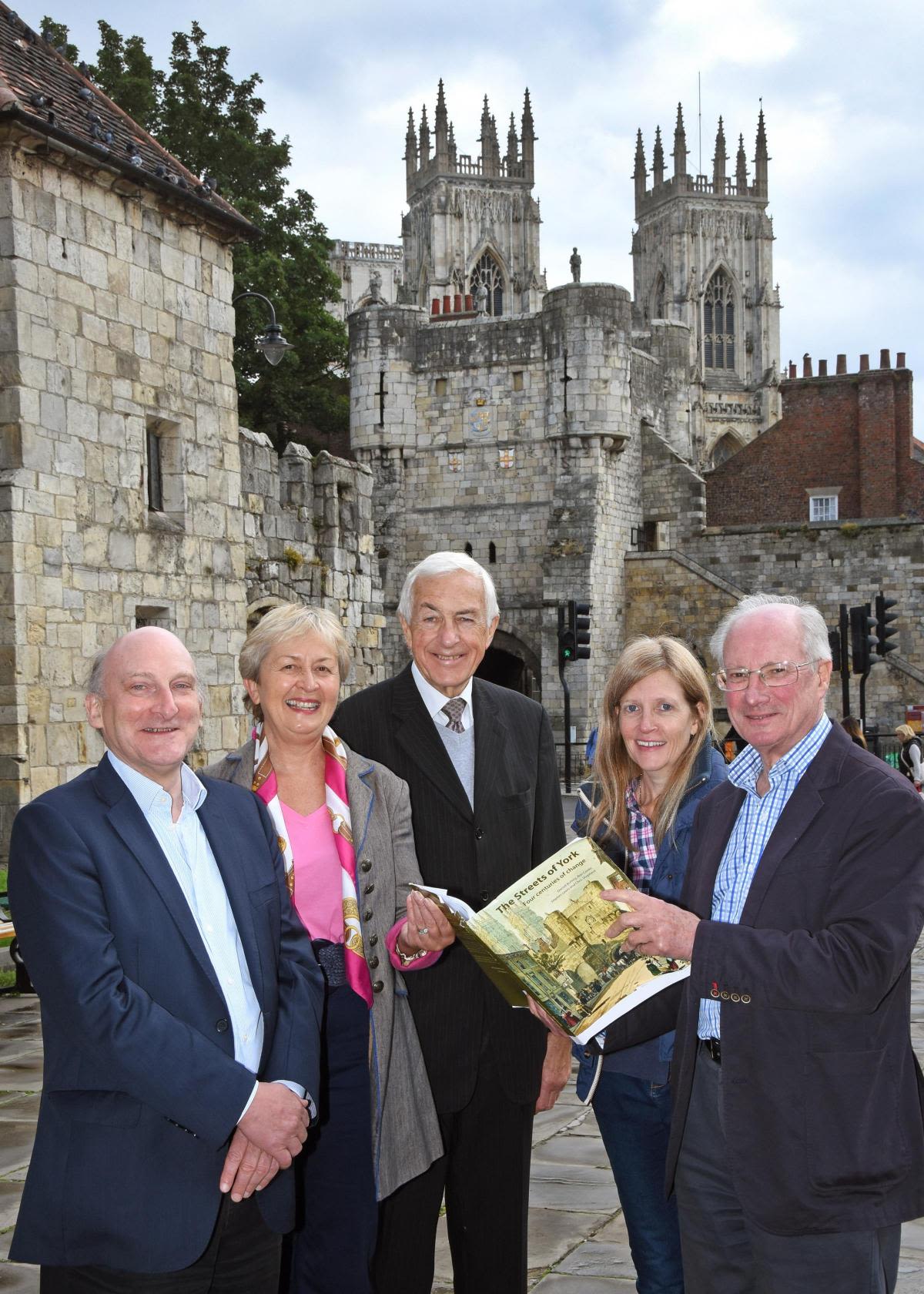
We are saddened to share the news of Darrell Buttery’s passing. He was a member of our Heslington Circle, and a passionate champion for the city of York. I had the privilege of meeting Darrell in March earlier this year, and even during his painful illness, he remained kind, courteous and passionate about York.
Professor Sir Ron Cooke, a close friend and co-author, has shared his obituary for Darrell:
“With the passing of Darrell Buttery MBE York, and its region, has lost one of its most knowledgeable, passionate, committed, and devoted citizens, a man who played many vital roles here throughout his long career.
A distinguished school teacher in several local schools and an extraordinary teacher of English to those who wanted to learn (he wrote the history of two of the schools, and was a governor of several); a diarist uniquely who recorded York events daily for over 45 years; a brilliant collector of all things York - from paintings to shop bills and clothing, especially from Georgian times and beyond; and his knowledge of country houses was peerless.
He was an outstanding envoy for the City's heritage, contributing to York Civic Trust and The Georgian Society as trustee and Chair, and as a long-standing member to the City's Conservation Advisory Panel, and as Governor of the Merchant Adventurers Company, He was an elected councillor (for Poppleton) and campaigner against any planning developments that he thought were in conflict with the enduring value of heritage - so that, for instance, early plans for the Clifford's Tower area, and the proposal for city offices in Hungate were vigorously and successfully opposed.
Selfless and indefatigable, Darrell gave many tours and talks on York's heritage, and wrote several books, such as The Streets of York, and The Vanished Buildings of York. A gifted lecturer, a selfless and generous entertainer, always supportive of young people, rarely critical of others, and a valued colleague to his army of friends from all walks of life.
Sonorous, occasionally sardonic, always kind, Darrell will be sorely missed.”
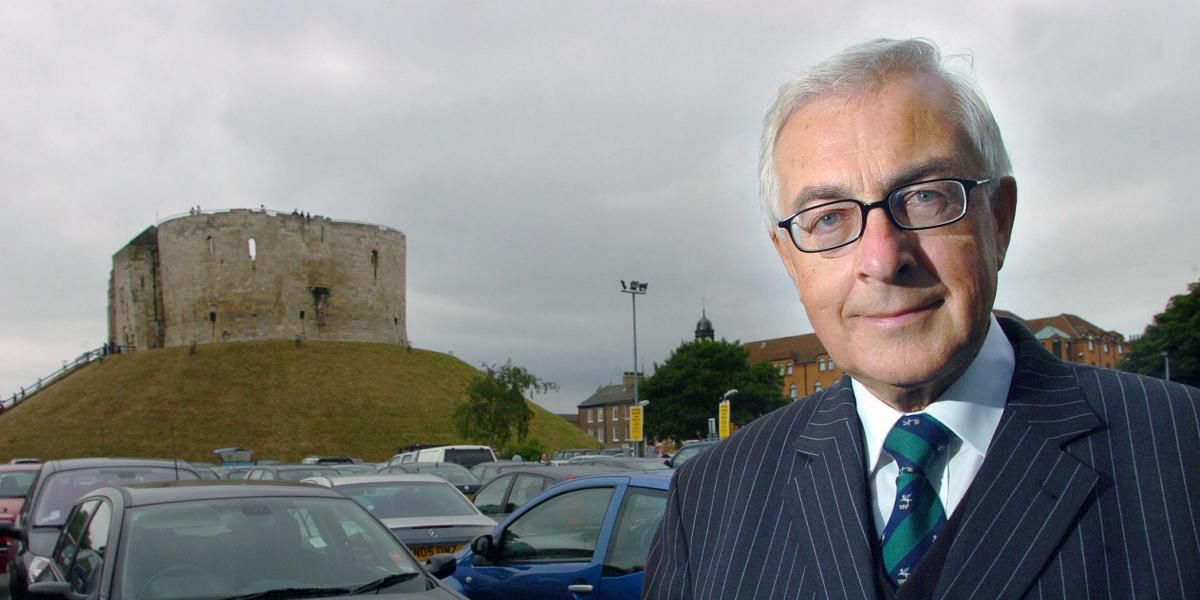
Impact
Below I have shared two inspiring stories from Max and Wanda about the wonderful gift they made in memory of their father David Rowe who was a major figure in the Department of Chemistry.
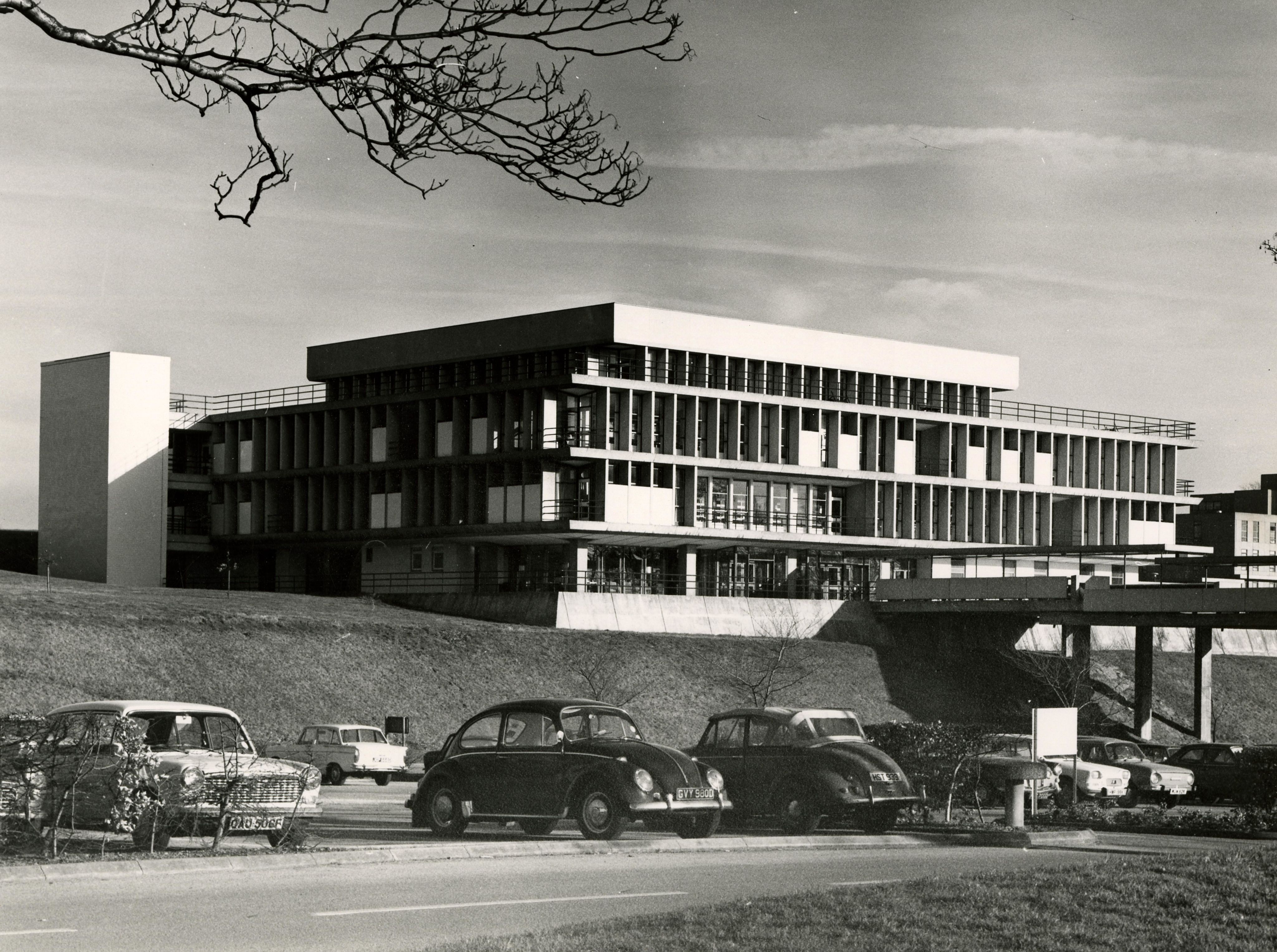
Remembering David Rowe, 1925 - 2021
David Rowe was a pioneer of Management and Industry teaching in the Department of Chemistry at York. Max and Wanda chose to make a gift in memory of their father, David, and in keeping with his wishes, they have established two prizes to support undergraduates in the Department of Chemistry. I asked Max and Wanda to share their memories of David, and why York was so important for him:
“One day during my first year at university, while I was at supper in my hall of residence, I was summoned to the phone in the foyer – this was long before the advent of mobile phones. Knowing that such calls usually heralded a serious event such as an accident, or a death, it was with some trepidation that I made my way to the phone. I needn’t have worried: my father was on the line, sharing with palpable jubilation and excitement the news that he had been offered a position at York University to set up two new courses in the Department of Chemistry, one on Chemistry and Industry, and the other on Chemistry and the Environment. Lacking a Ph.D., he initially had not been shortlisted for the job, but didn’t take no for an answer. He sent a letter explaining why he felt he was an excellent fit for the job, along with a proposal for the two courses. These had the intended result and he was soon ensconced in a flat in Goodricke College until the rest of the family could move to York.
An intellectual at heart, with wide-ranging interests in Geology, Mathematics, Chess, French, fell running, and foreign countries, my father revelled in university life and shared his outlook with the students he tutored. He was instrumental in setting up visits to industrial sites to see chemistry in operation on the industrial scale. The annual student Geology field trip, which my father initiated, was a natural outgrowth of his passion for Geology: no excursion into the countryside (and as youngsters, we had many) was complete without a hammer in hand and a commentary (more likely a lecture!) on the local geology.
David’s years at York University were professionally the happiest of his life which prompted Max and me, separately, to suggest a donation to fund scholarships for students in the Chemistry department. We were pleased to learn that although the names of the final year courses have changed, they still include much of the same material that our father taught.
Consequently, the David Rowe Prize in Green and Sustainable Chemistry and the David Rowe Prize for Atmospheric and Environmental Chemistry, to be awarded to two outstanding senior students, are fitting memorials, and we believe that David would have been proud to support students in this way.”
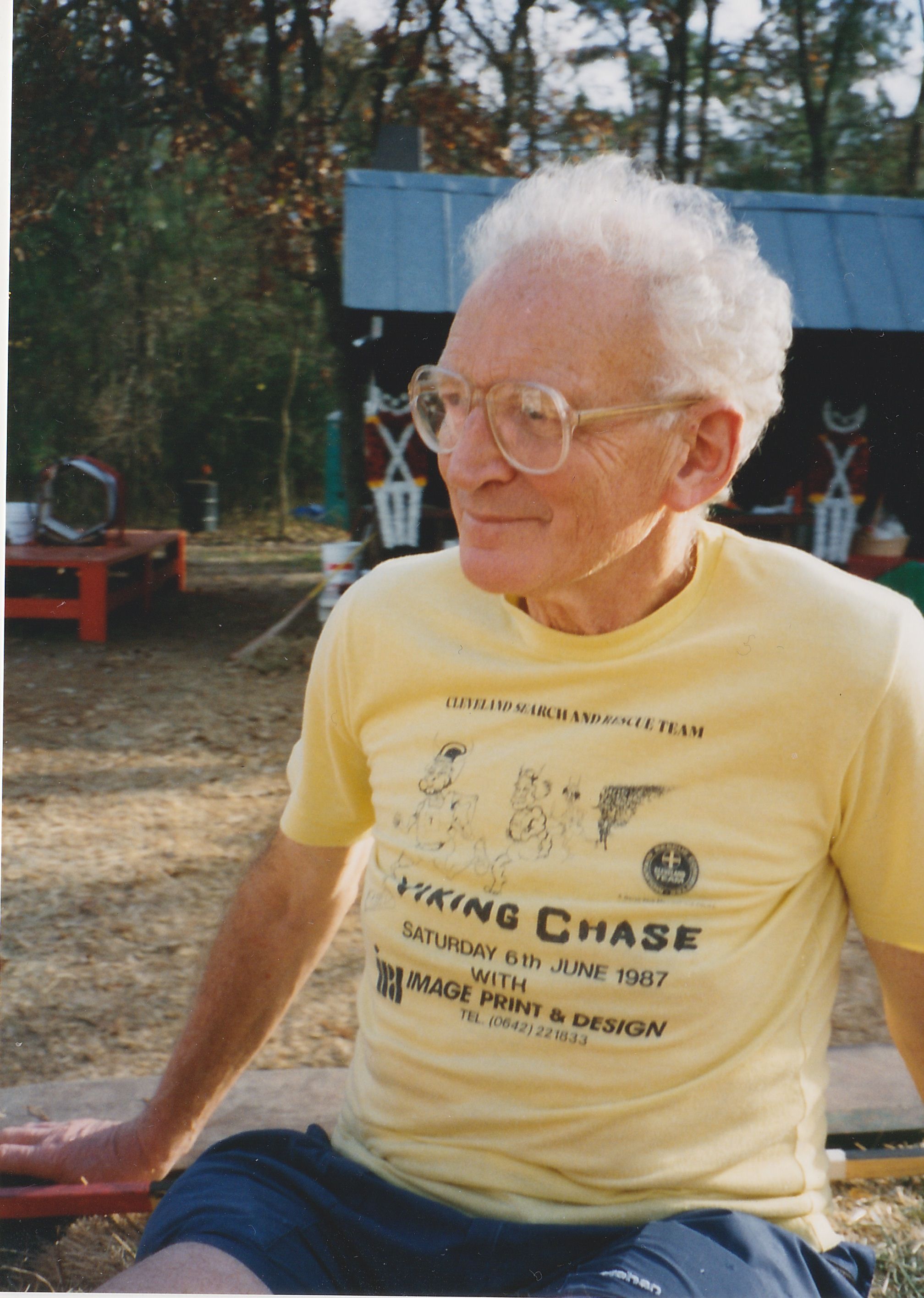
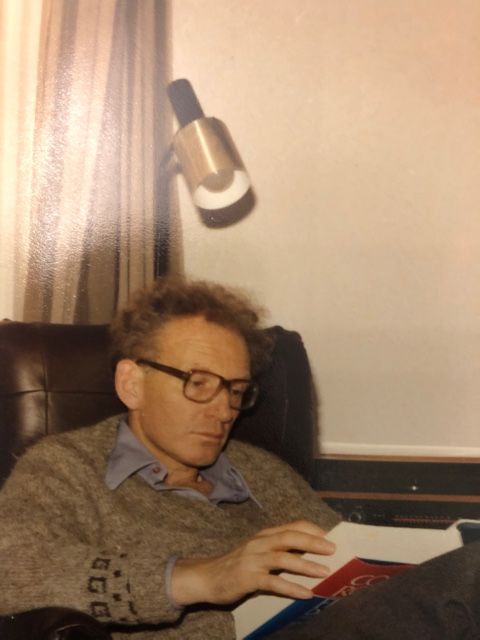
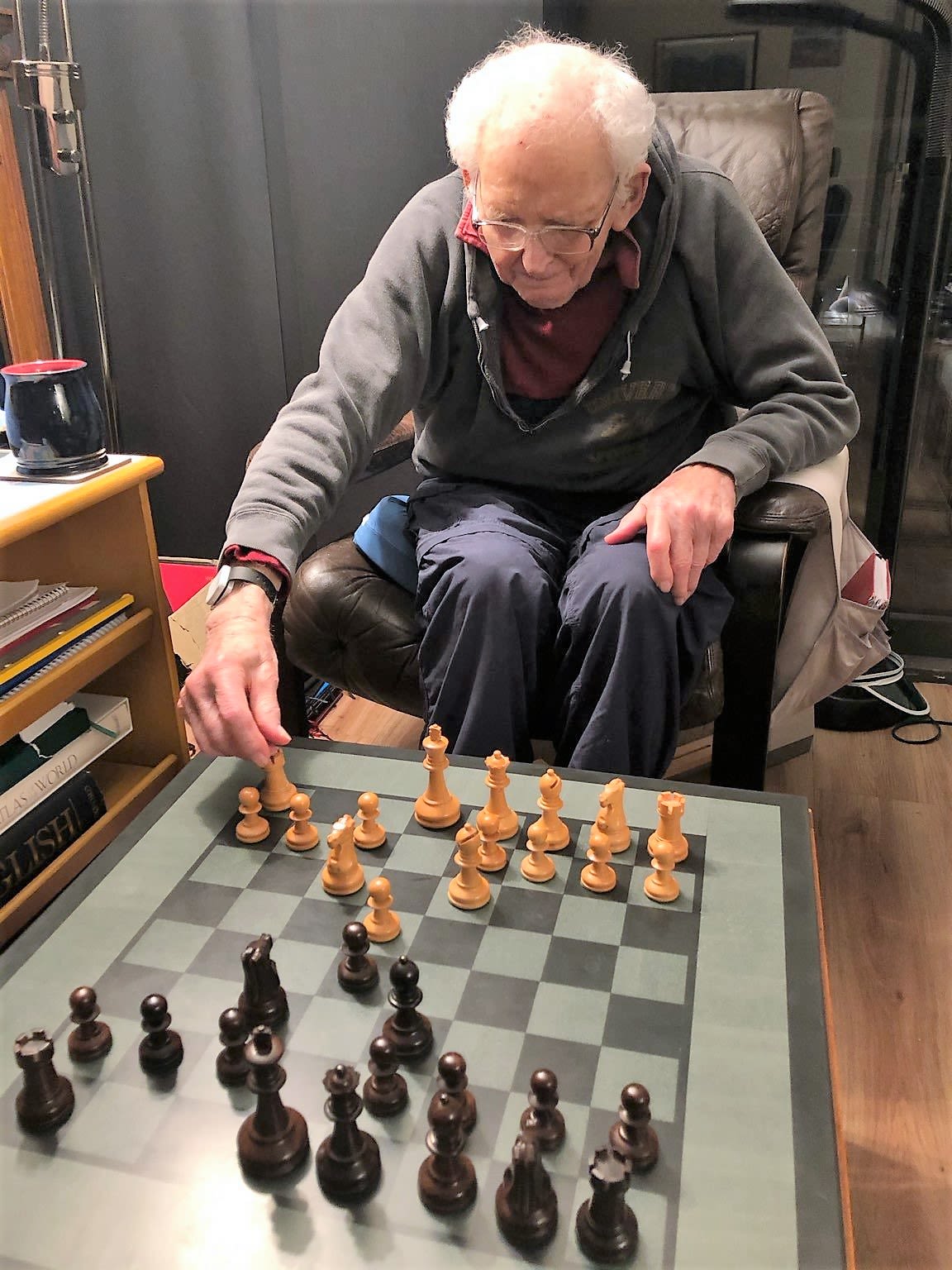
“One day (in 1974) my father, David, suggested that, as he was going to a meeting in York, I might like to come with him. We drove down from Teesside, where we lived, and I remember him parking on the University campus outside the Department of Chemistry. After his meeting, on the drive back, he seemed excited, wanting to say something, but uncharacteristically silent. A few days later I learned why. David told me that his “meeting” had been an interview for a lectureship at the University of York. He had hoped that he would have heard the outcome on the day which is why he was so keen for me to travel with him. David took a flat in Goodricke whilst we continued to live on Teesside so that I could complete my O’ levels. Most weekends, I would cycle the 50 odd miles to York, taking the scenic route through the North Yorkshire Moors, to join my parents at the flat.
David loved to find ways to explain things and I was often a guinea pig! Whilst much of his geology and chemistry failed to excite me, I do remember grasping the concepts of Monte Carlo simulations, and at the age of 15 I proudly fed a deck of punched cards into a computer that filled a room and demonstrated how to optimise the number of tankers required to maintain production from a plant in the face of a variety of uncertainties without the storage tanks getting too full!!”
Thank you Max and Wanda for this gift, which will continue David’s legacy and support the next generation of bright young Chemists to forge their own path in the field of Atmospheric and Sustainable Chemistry.
Thank you
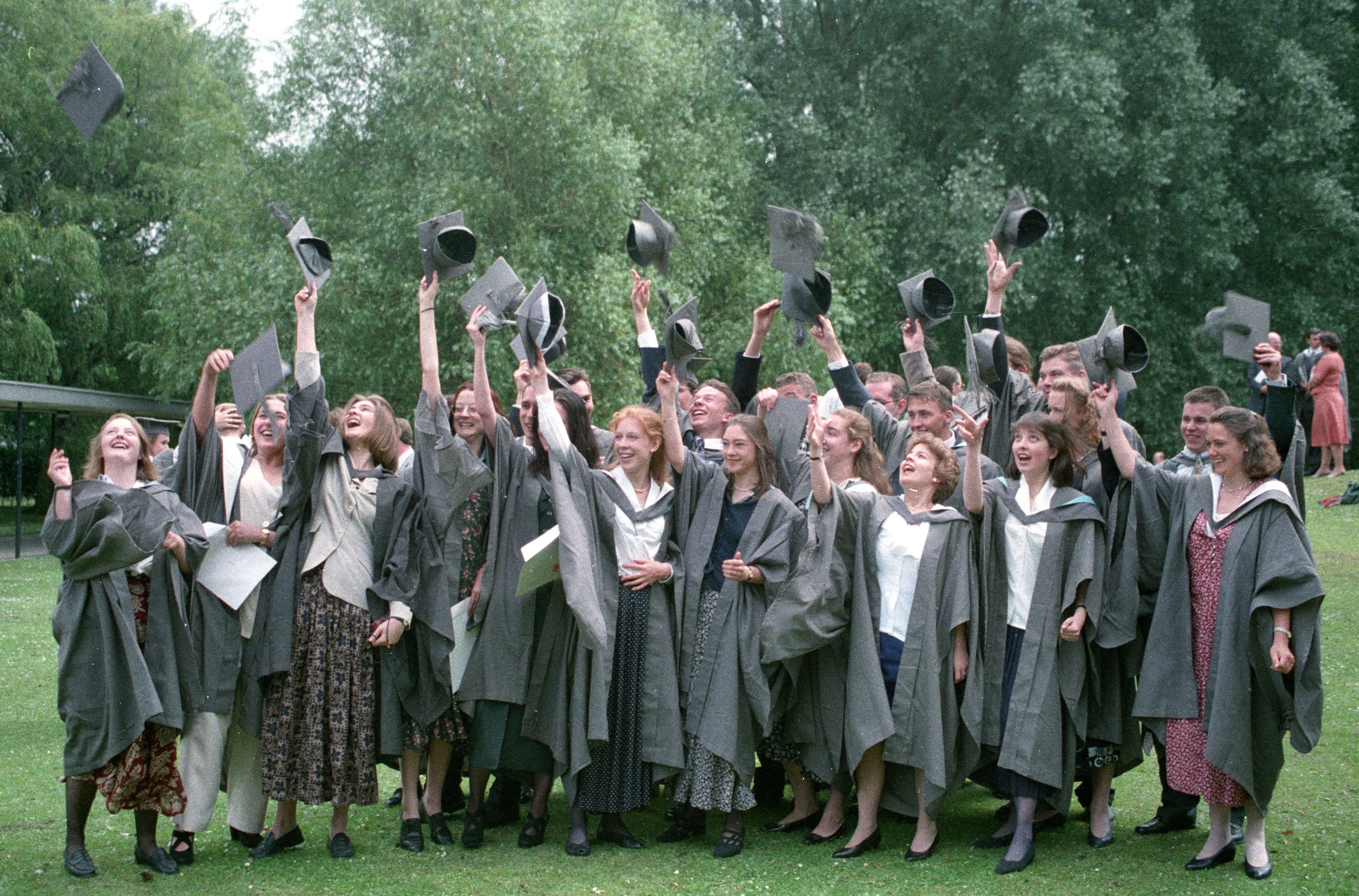
Thank you for reading our latest legacy newsletter. I hope you enjoyed reminiscing about York or finding out something new about the University and our wonderful archives! As well as learning about our community, Darrell and David, and the difference their legacy will have at York.
If you would like to find out more about making your own legacy to York, or giving in-memory of a loved one, please get in touch with me at mary.taylorlewis@york.ac.uk or download our free legacy brochure here.
You can read May’s newsletter here for more amazing stories from around the University.
